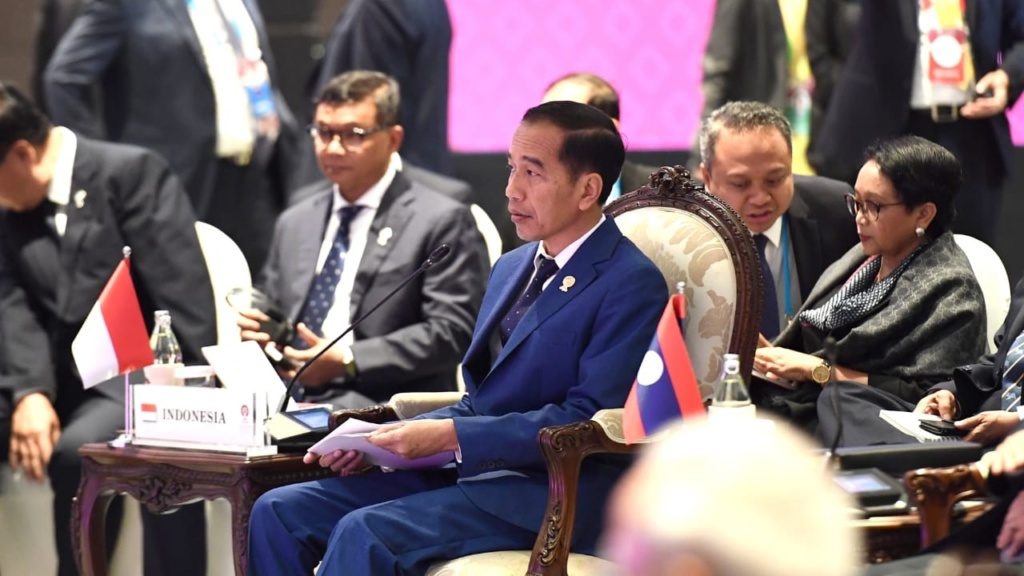Popular Reads
Top Results
Can't find what you're looking for?
View all search resultsPopular Reads
Top Results
Can't find what you're looking for?
View all search resultsJokowi says no to Southeast Asia becoming 'landfill for hazardous and toxic waste'
Change text size
Gift Premium Articles
to Anyone
P
resident Joko "Jokowi" Widodo has put the spotlight on the world’s mounting plastic waste problems during this year's East Asia Summit (EAS), suggesting that state leaders collaborate to handle the issue, particularly with regard to environmentally hazardous waste.
"Indonesia is hoping for collaboration with countries around the world, especially those in the East Asia region, to prevent the illegal transfer of hazardous and toxic waste as regulated in the international agreement [Basel Convention]," Jokowi said on Monday during the 14th EAS in Bangkok.
"Of course, none of us want the Southeast Asian region to become a landfill for hazardous and toxic waste," he went on.
A number of developing countries in Asia, including Indonesia, Malaysia, Thailand and Vietnam, had been the target countries for waste export after China banned the import of plastic waste through the implementation of the National Sword policy.
Jokowi said the Indonesian government had taken several measures to make sure that no country treated Indonesia as their landfill, including by sending hazardous waste imported to the archipelago back to the exporting country.
Indonesian authorities claimed it had sent back the hazardous waste to exporting countries, including the United States. According to customs and excise office data in October, the country had returned at least 374 containers filled with ─ among others ─ diapers and plastic.
Environmental groups Nexus 3 and Basel Action Network, however, found that some of the containers failed to reach their countries of origin and were diverted to other countries instead, most of which were in Asia, namely India, Thailand, Vietnam and South Korea.
The Indonesian government previously denied giving orders to ship the contaminated waste to be reexported to the aforementioned countries.
President Jokowi also said during the summit that Indonesia aimed to achieve its target of reducing marine debris by 70 percent by 2025.
The Southeast Asian country is reputed to be the second-biggest marine plastic polluter in the world after China, producing an estimated 1.3 million tons of plastic waste every day ─ a major threat to the planet’s ocean’s ecosystem.
"I’m optimistic that Indonesia can achieve the target. Countries in the East Asia region should also push for the global antiplastic waste movement." (vny)







